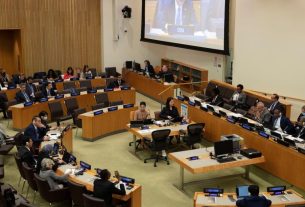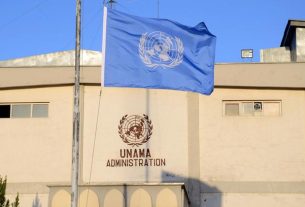On the occasion of the presentation of the 2025 Global Humanitarian Overview (GHO – Geneva, 4 December 2024), Commissioner for Preparedness, Crisis Management and Equality Hadja Lahbib recalled the alarming scale of violations of International Humanitarian Law (IHL) across the globe and urged respect for IHL – the best shield for protecting civilians affected by conflict. She also recalled the need to expand the resource base, to ensure adequate humanitarian funding for the growing number of crises worldwide.
Organised by the United Nations Office for Humanitarian Affairs (OCHA), the GHO is the world’s most comprehensive, authoritative and evidence-based overview of humanitarian trends and needs worldwide. OCHA’s assessment of the current humanitarian situation globally paints a bleak picture. As was the case last year, the GHO 2025 reflects intensive work by humanitarians to prioritize assistance and protection for the people and places who need it most.
In 2025, 305 million people will require urgent humanitarian assistance and protection, out of which 190 million people will be facing life-threatening needs. This is mainly due to a record number of armed conflicts and the increased frequency and severity of climate-induced disasters. OCHA estimates that over $47 billion would be required to save these people lives.
Commissioner for Preparedness, Crisis Management and Equality, Hadja Lahbib, said: “As we enter 2025, the gap between humanitarian needs and humanitarian funding is growing. This impacts our ability to uphold International Humanitarian Law, protect civilians, and deliver life-saving assistance. In the EU, we are committed to remaining a leading humanitarian donor. And we will work with our global partners, donors, the UN and NGOs to strengthen the global humanitarian system and tackle the challenges ahead. We must focus on two areas: first, increasing funding, expanding the donor base and working more efficiently. And second, we must reduce humanitarian needs, often caused by conflict and the climate crisis.”



